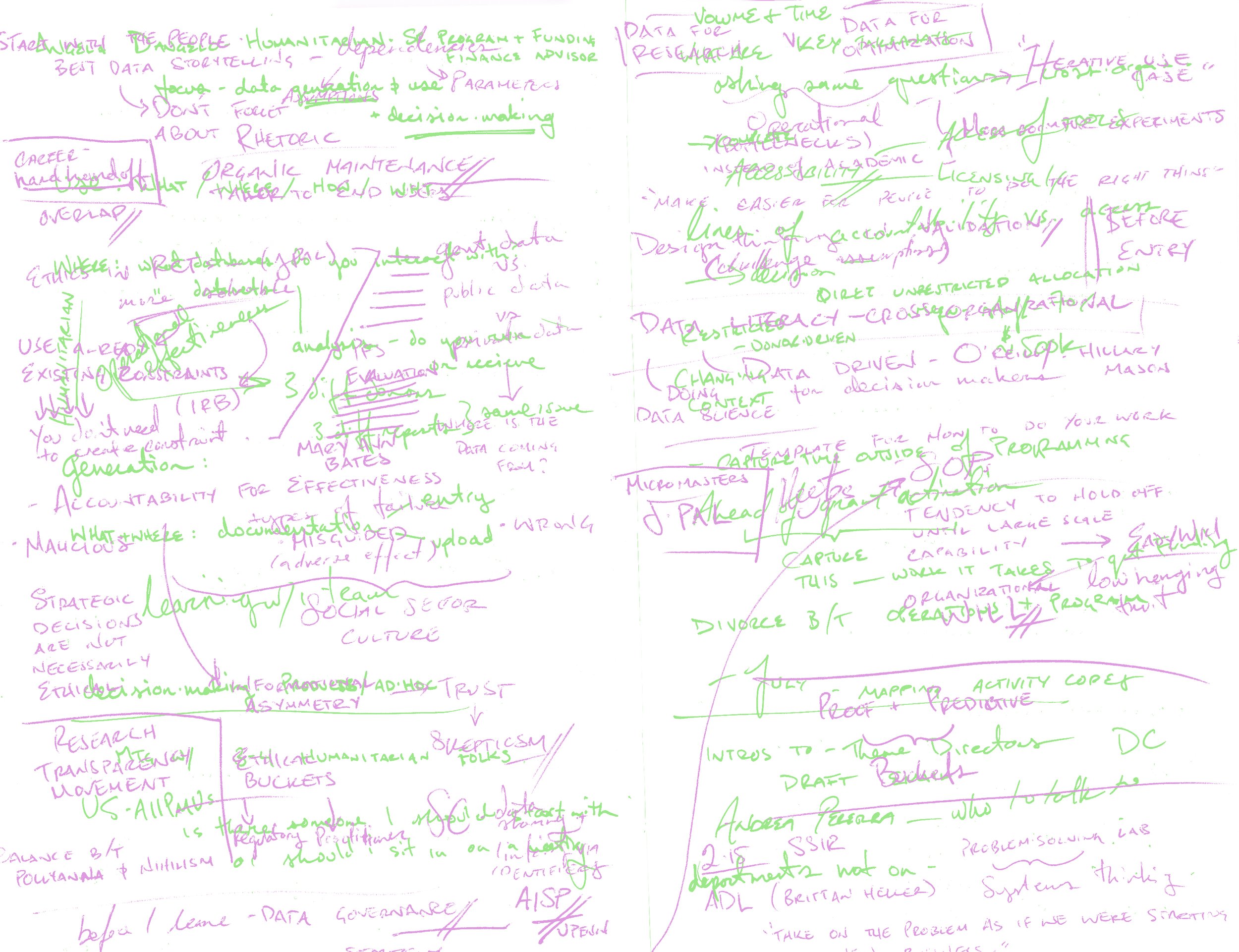
why should we do this work, in this way?
-
We in the social sector, and our culture at large (especially in the United States) have a habit of requiring ‘proof’ before we’ll believe something. We want proof that folks who say they need a service actually need that service. We want proof that our community organizations are using every dollar donated towards direct service. We want proof that recipients of funds, services, or assistance are being ‘responsible’ with those resources.
This “prove-it!” culture reaffirms an ideology that assumes that those with more resources (money, technology, time, etc.) know more (or better) than those with less or differently valued resources. worships quantitative data over stories and traditional knowledge, that tells us that if we can’t measure something, it doesn’t matter, and if we can’t see something, it doesn’t exist.
-
Data collection is crucial to our work - it’s also fundamentally extractive. We cannot divorce the history of data (and the resulting archives) from white supremacy and abuses of power.
We extract information about stories, behaviors, and lives - and we have the technology to do so without requiring folks’ consent or allowing the space for folks to tell their own stories.
If we’re not thinking about mutual benefit or alternatives to collecting sensitive data, we’re likely to reinforce the very power dynamics we often claim to be dismantling.Some work that articulates this beautifully is from Lorgia García Peña’s Translating Blackness: Latinx Colonialities in Global Perspective:
"Michel Foucault writes that archives are the "law of what can be said." They are what organize hierarchies of time and statements of truth and are also locations of power that grant historians credibility. For historians, the archive is the place of legitimacy where their “truth” is sanctioned. But as many scholars of critical archival studies have noted, traditional archives, heritage institutions, and historical publications are filled with silences regarding the lives, agency, participation, and cultural production of Black people. The process of silencing, as Trulliot reminds us, begins at the source of creation, not at the archive.” - page 92 of the first edition, paperback
Another great resource is Mimi Onuoha’s work on Missing Datasets. -
Many social impact organizations are working to remake their relationships to people and their stories. From models of Trust-based philanthropy to data trusts to Collaboratives implementing shared community data principles, folks are doing some very cool work - and your organization can, too!
-
Too often, we center trauma in our data analysis and storytelling.
We want funders and donors to see how ‘deserving’ folks are - that they’ve been through the most, they’re the most vulnerable. That’s often true! But when we focus on tugging on the heartstrings by showcasing vulnerability, fear, and trauma, we reinforce the hierarchy of nonprofit or foundation (read: money) over people, instead of something more collaborative, humble, and based in solidarity.
When we honor all aspects of humanity, our datasets look and feel different. When our datasets look and feel different, so do our decisions and relationships.
